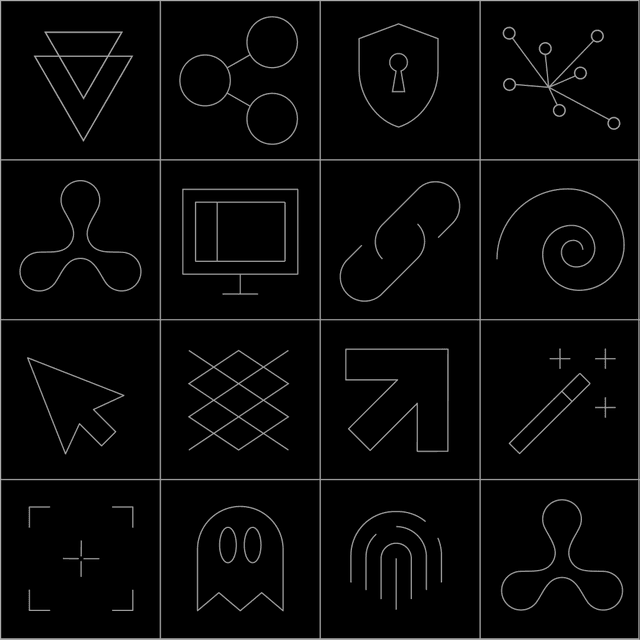Developers were invited to help shape the future of Midnight’s functionality and accessibility in the ecosystem tooling virtual hackathon. The focus was on creating foundational tools that remove friction, improve workflow, and make it simpler for others to build.
Judging criteria
Submissions were judged on four key criteria:
- Impact: does this make building on Midnight easier or more powerful?
- Reusability: can other developers quickly adopt or extend it?
- Quality: is the code robust, documented, and tested?
- Adoption potential: does it solve a real need for Midnight developers?
The entry tracks
Participants submitted projects across five distinct tracks designed to improve the developer ecosystem.
- CLI Tools: To build command-line utilities for managing balances or scaffolding applications.
- Dashboards and User Interface (UI): To make on-chain activity visible with block explorers or data visualization dashboards.
- Integrations: To connect Midnight with existing developer tools such as wallet connectors, Hardhat plugins, or GitHub Actions.
- Developer Experience (DX) Libraries: To create tools like TypeScript helpers, Python SDKs, or testing libraries.
- NFT Design: To shape the visual identity of ecosystem contributions through functional digital art for achievements and recognition.
Builders building for builders
This hackathon drew the largest turnout yet, with developers building tools inspired by real challenges they'd faced building on Midnight. From reducing friction to automating setup, practical tools were made to enhance the developer experience of building on Midnight.
The result was a set of tools and prototypes that help smooth out the sharp edges of developing in a testnet environment, while laying the groundwork for a stronger developer ecosystem.
The winners
CLI tools
Winner - Scaffold Midnight
Scaffold Midnight is a zero-configuration Command Line Interface (CLI) tool that enables developers to rapidly set up ZK-enabled smart contracts on Midnight. Creator Kaleab Abayneh developed the tool by creating small scripts to simplify his own learning process. The result is a one-command project bootstrap that reduces initial application setup time from over half an hour to just a few lines of code.
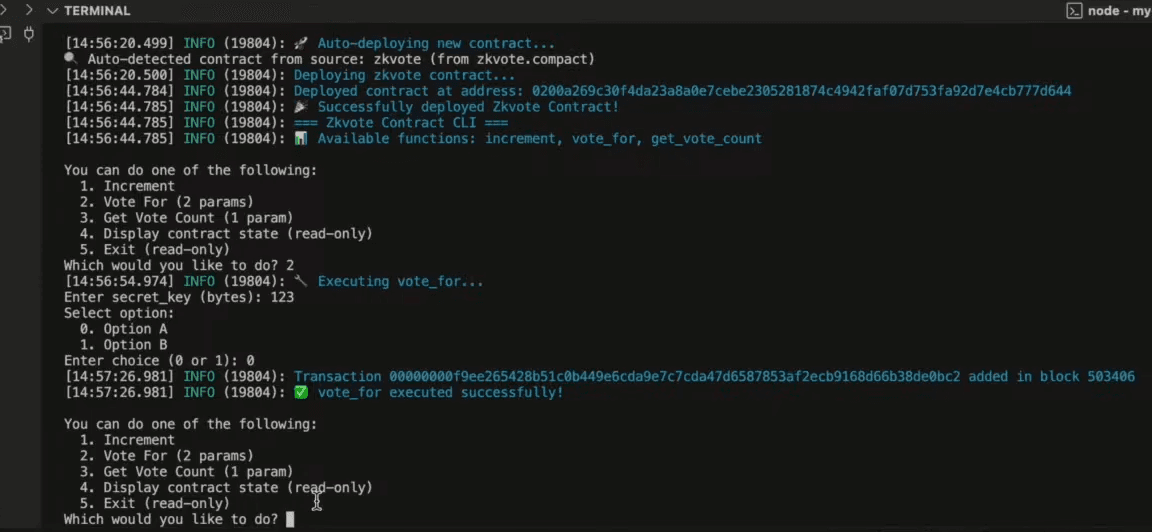
Judges were impressed by the significant time saving this tool provides, allowing developers to configure a new project in minutes.
Second Place: Midnight Node Scripts
Midnight Node Scripts created by Enigma offers a valuable collection of scripts designed to simplify the complex task of setting up and monitoring Midnight nodes. These CLI tools significantly lower the barriers to entry for node operators, making the process more accessible and user-friendly. The code is available on Github.
Dashboards and UI
Winner - NBX
The team from NBX created Midnight MCP, a Model Context Protocol that simplifies interaction with the Midnight indexer. While the indexer provides a strong foundation for blockchain data, querying and interpreting that data can be difficult. Midnight MCP simplifies data access by translating it into a human-friendly structure, lowering the technical overhead for developers. This structure also makes it easier for AI and LLMs to interact with the data.
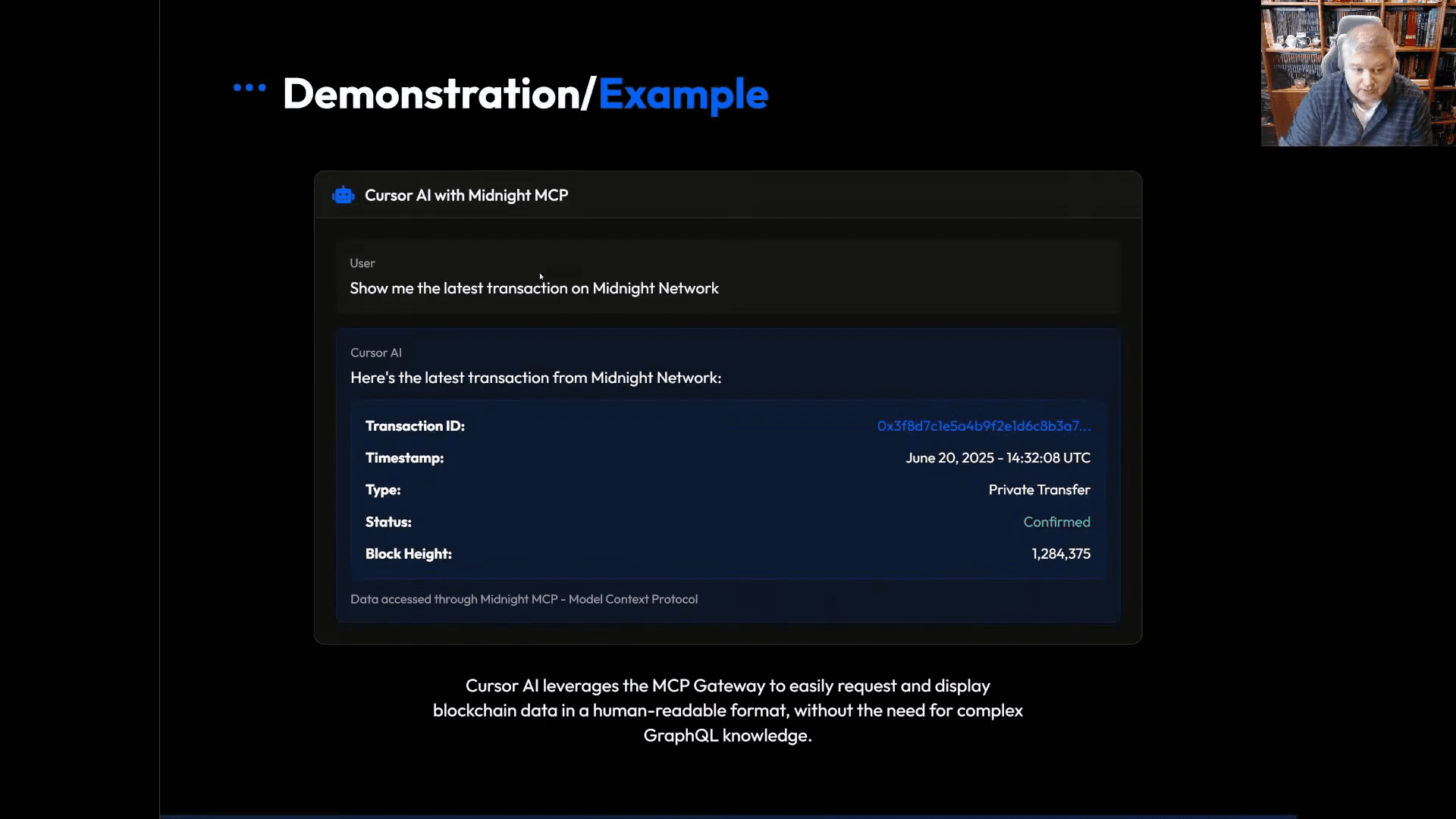
Judges commented that the tool is a good starting point for creating richer interfaces and is particularly useful for non-technical users who could potentially use AI to interpret on-chain data.
Their code is available on GitHub
Integrations
Winner - MNN Midnight
This project from MNN Midnight turns the complex Midnight validator stack into a one-click Kubernetes deployment. Helm Chart packages the Midnight code, Cardano relay, db-sync, and other components into a single repository, expediting the process of running a validator on a cloud provider.
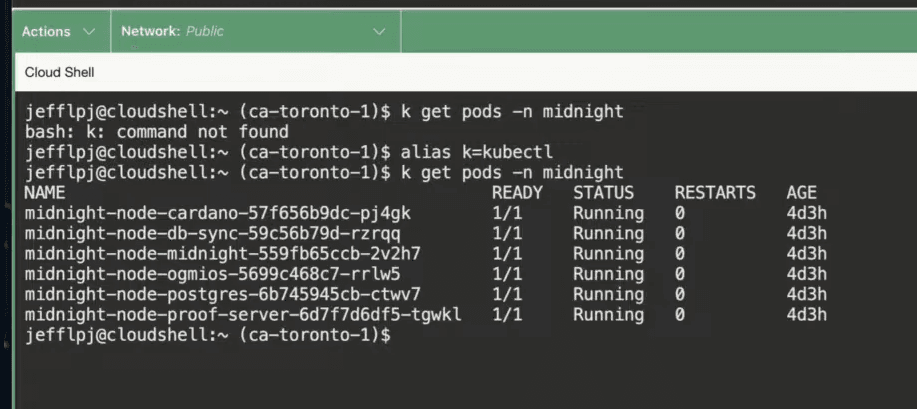
The judges applauded this as a useful tool for automating a complex process and making it easier for anyone to run a node.
Their code is available on GitHub.
DX Libraries
Winner - EnterpriseZK Labs
Midnight Forge is a proposed education, collaboration, and compensation system for aspiring Midnight developers. The system uses an anonymous decentralized digital identity NFT to manage credentials, track educational progress, and prove experience. The project does not yet incorporate programmable privacy and zero-knowledge proofs, but it looks forward to allowing for selective disclosure of information in the future.
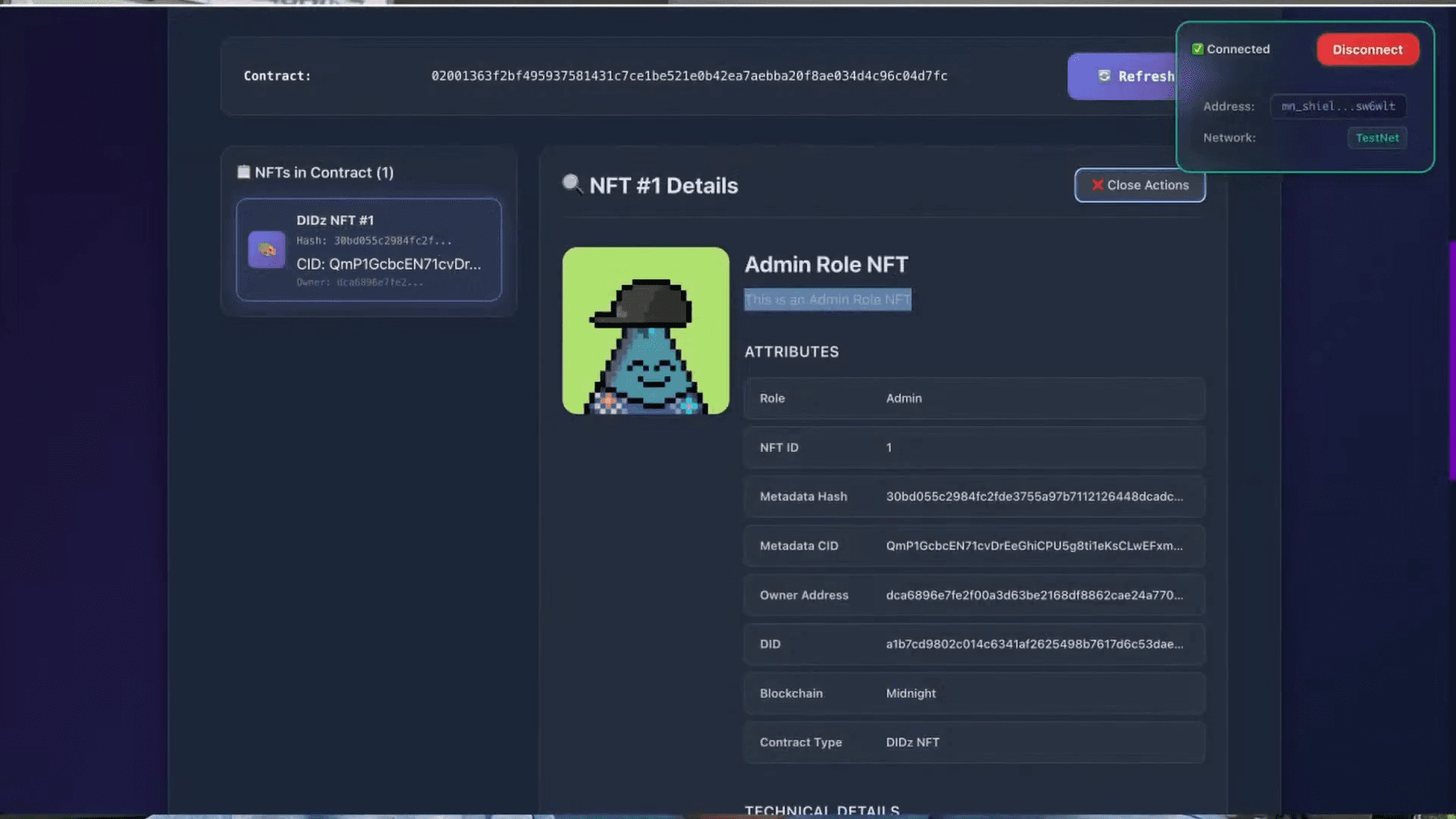
Judges appreciated the project's approach to accelerating education and developer engagement, which is an important part of broader community building. EnterpriseZK Labs also won the prize for NFT design.
Their code is available on GitHub
Second Place - Wybe
Wybe presents a sophisticated tool for the formal verification of Compact smart contracts, leveraging predicate calculus and designed to support several programming languages. Judges noted this project's unique and forward-thinking vision, providing a strong starting point for formal verification with Compact. The code is available on GitHub.
Advice for future hackathon participants
The winning projects demonstrated these key strengths:
1. Make it usable by others
- Think beyond the pitch.
- Write clear documentation.
- Record a compelling demo.
- Structure your code for seamless reuse.
- Ask yourself: Could another developer build on this without asking me questions?
2. Prioritize creativity and real use cases
- New applications and novel approaches always stand out.
- The most compelling projects solve real problems with elegant or original solutions.
- For example, design a smoother integration point or create a new use case for Midnight’s private and public states.
3. Stay focused
- A well-executed, single-feature tool consistently beats an overstuffed app with imagined future functionality.
- Reduce your scope.
- Keep your purpose clear.
- Polish what you ship.
What’s next: Mini DApp Virtual Hackathon
The focus:
- Small, polished prototypes, not full apps.
- Build one clear, creative slice of a DApp.
The hackathon runs for two months. Submissions are open until August 18, 2025 and winners will be announced on August 25, 2025.
Learn More
Visit the official hackathon page.
Join the #dev-corner channel on the Midnight Discord to ask questions and collaborate.

